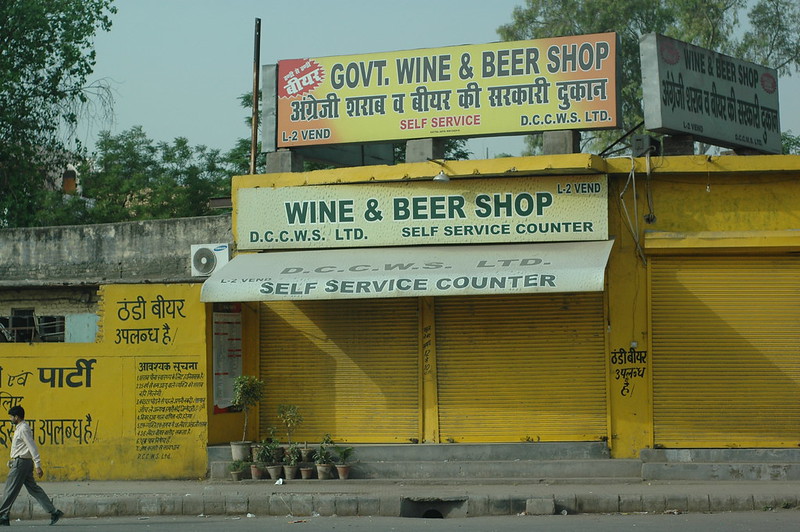New Delhi: When social distancing means no social drinking, not even a convivial beer or glass of wine, and lockdown translates to no alcohol at all with bars and retail outlets firmly shut, spirits take a nose dive – mild depression for some and outright despair for many others.
COVID-19 being the great equaliser, the nationwide lockdown, which began on March 25 and is set to go on till at least May 3, has been a sobering experience for millions of Indians in villages and cities going without their everyday or occasional tipple.
While the once-in-a-while drinkers are missing saying ‘cheers’ as often as they’d like, there has been a surge in withdrawal cases.
Those with problems of alcohol dependence are most seriously hit with no access to alcohol or de-addiction centres and support groups such as Alcoholics Anonymous that help them cope with their addiction.
With all watering holes and liquor stores shut – only stores selling essentials are open in the lockdown period — even the affluent with bars stocked with premium gin, vodka and single malts are running low on stocks.
“I have maintained a good stock over the years … I won’t tell you the quantity but it was more than enough. But then the lockdown – and now the extension – took all of us by surprise and for once even I am worried my booze stock will run dry,” said Nishant Gupta, a Delhi businessman.
Many, even among the affluent, are rationing their drinks and borrowing from others who might have some extra bottles stashed away.
According to a 2019 report by the National Drug Dependence Treatment Centre, AIIMS, 14.6 per cent of the population (between 10 and 75 year of age) in India consumes alcohol – about “16 crore people” in total.
Of these, nearly one in five alcohol users suffer from alcohol dependence and need urgent treatment, said the report titled “Magnitude of Substance Use In India”.
A 38-year-old in Amritsar who said he had been an addict for 10 years and was undergoing therapy is among those most affected.
The prolonged shutdown disrupted his therapy and the social isolation has exacerbated his problems.
“I got agitated without any trigger factor, couldn’t sleep for long and there was shivering too. I tried contacting my friends and some close family members, asking them if they could help me with a bottle or two but no one helped.”
“Earlier, I was going through therapy… Since I am showing what my doctor tells me are ‘withdrawal symptoms’ I have again been put on therapy,” he explained.
Kaushik Kumar in Kolkata said all his stocks have dried up and he is on mild anti-depressants.
“I have been an alcoholic for last 20 years… Right now I am having one pill a day so I can have sound sleep every night,” Kumar said.
There are tragic consequences too. In Kerala, which has a per capita annual consumption of over eight litres, the highest in the country, at least nine people reportedly ended their lives.
The state government had directed the excise department to provide liquor to those with a prescription from a doctor.
The move, which faced a backlash by doctors, was later put on hold by the Kerala High Court.
“The non-availability of alcohol can be an additional reason for stress and anxiety for a person suffering from withdrawal symptoms, but in that case what needs to be addressed is the possible dependence or addiction.
“Instead of considering alcohol as an essential, it would be more helpful if people with alcohol dependence seek psychiatric/therapeutic intervention,” said Ann Philipose, a psychologist.










